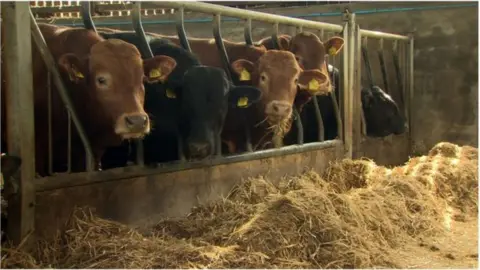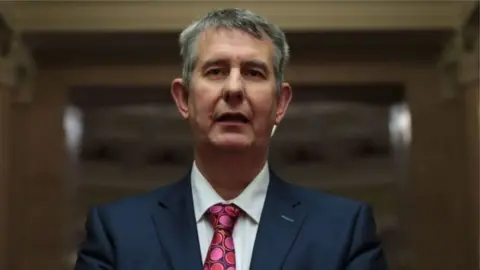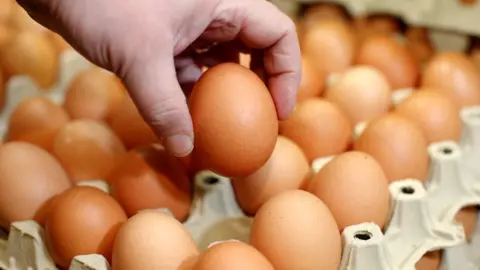Coronavirus: Produce 'may be stuck on farms if crisis worsens'
 BBC
BBCA fifth of agricultural produce could be stuck on farms if the coronavirus crisis worsens, according to a Stormont briefing document.
It could happen due to problems on food production lines with more than £100m needed to tackle it.
Supply lines continue to function effectively, but "significant concerns" remain should the situation worsen.
Issues include the availability of processing workers and of departmental staff responsible for food inspection.
Dairy, poultry, pigs, beef, sheep, horticulture and eggs are assessed as having the potential to be worst affected.
The problems could last up to three months, according to the briefing given to MLAs on Stormont's agriculture and environment committee.
The Department of Finance has been asked to provide the money.
It would be used to pay producers for lost product and for the disposal of material which had no route to market.
The spending request was submitted on 1 April and will be kept under review as the situation develops.
 PA Media
PA MediaLast week, it emerged that agri-food was facing a crisis due to the closure of bars, restaurants, hotels and work canteens - the so-called "food service" sector.
It has led to global markets collapsing for beef, dairy and other produce.
Agriculture Minister Edwin Poots has said the bill for such "market disturbance" could probably not be met by Stormont and would require support from London and Brussels.
The industry has called for financial support with beef farmers and processors under pressure and the dairy industry saying it would soon find itself in survival mode.
'Fly-tipping'
Meanwhile, assembly members were told a further £16m has been sought from the Department of Finance to deal with waste issues linked to the ongoing public health crisis.
Some of the money would be used for dealing with fly-tipping and waste storage.
 Reuters
ReutersBut the bulk of it would pay the landfill tax if recyclable material had to be put into landfill at a cost of £120 a tonne should councils be unable to maintain "uncontaminated waste streams".
The briefing document described this as a "substantial burden" on councils for which they are not resourced.
The Department of Agriculture, Environment and Rural Affairs (DAERA) said it has been contingency planning for a range of possible scenarios as a consequence of the Covid-19 pandemic.
"If there were to be any interruption in food processing and logistics that resulted in produce not moving off farm, then DAERA needs to be ready to take appropriate action to alleviate the consequences," a spokesman said.
"It is not our expectation that this will happen and we have been working closely with the food processing sector to ensure that the food supply chain continues to remain fully operational."
